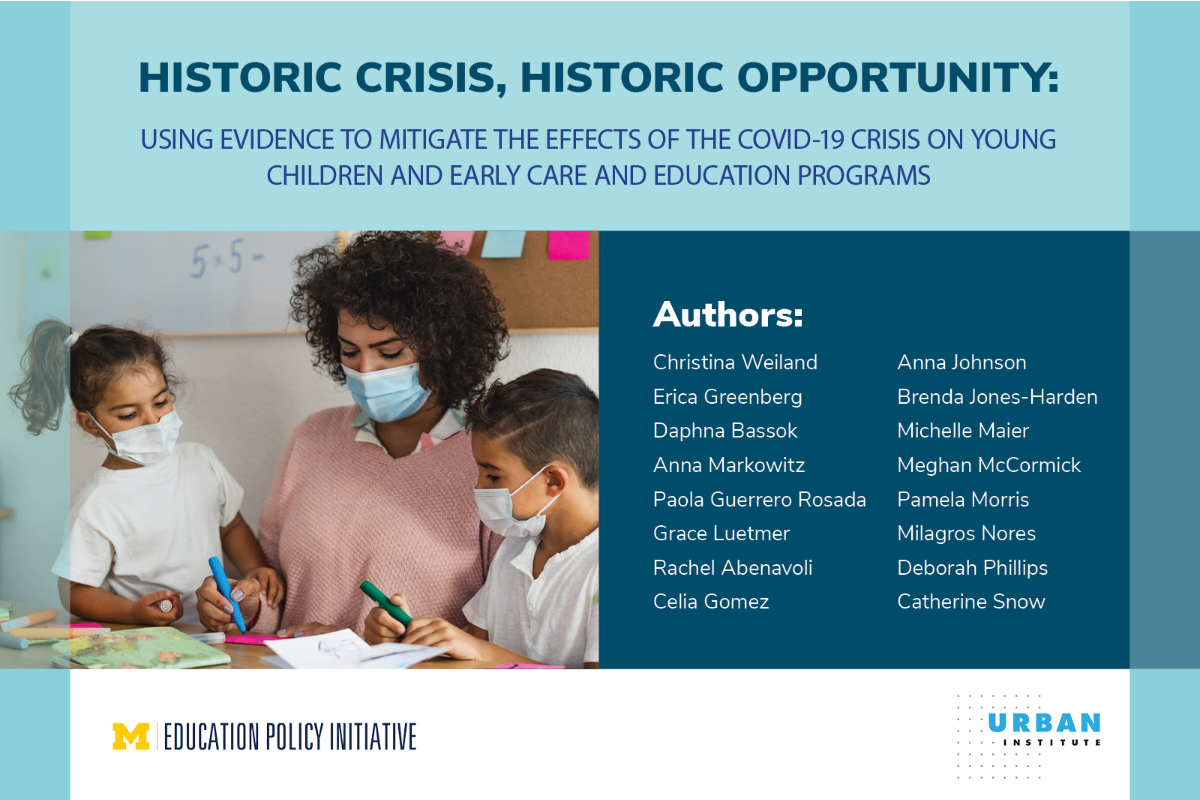
Although young children are more resilient to the health effects of Covid, the global pandemic hit them with stunning force. In the face of this historic challenge, how did we do? According to a recently published synthesis of national, state and local research…not great. The changes in learning location probably interfered with development, and the time and quality of instruction dropped, despite efforts to plug the holes with remote learning. The big question now is what we do about the early childhood education (ECE) landscape that has emerged.
Professor Christina Weiland of the University of Michigan’s Education Policy Initiative is the lead author of “Historic Crisis, Historic Opportunity: Using Evidence to Mitigate the Effects of the COVID-19 Crisis on Young Children and Early Care and Education Programs,” a joint effort with researchers from the Urban Institute, MDRC, RAND, the National Institute for Early Education Research and several universities. The researchers also collaborated with 10 policy leaders from across the country. The paper supports both immediate policy changes and structural fixes for the “system” (or lack thereof) to make it more equitable.
The Heising-Simons Foundation funded the analysis, and Professor Weiland and her co-authors worked quickly, given the dynamic nature of the crisis and the need for feasible policy recommendations. Dr. Weiland, a mother of two—her second was born just months before the pandemic struck—says her team reviewed 300 different studies, ultimately selecting 76 high-quality studies for in-depth review.
